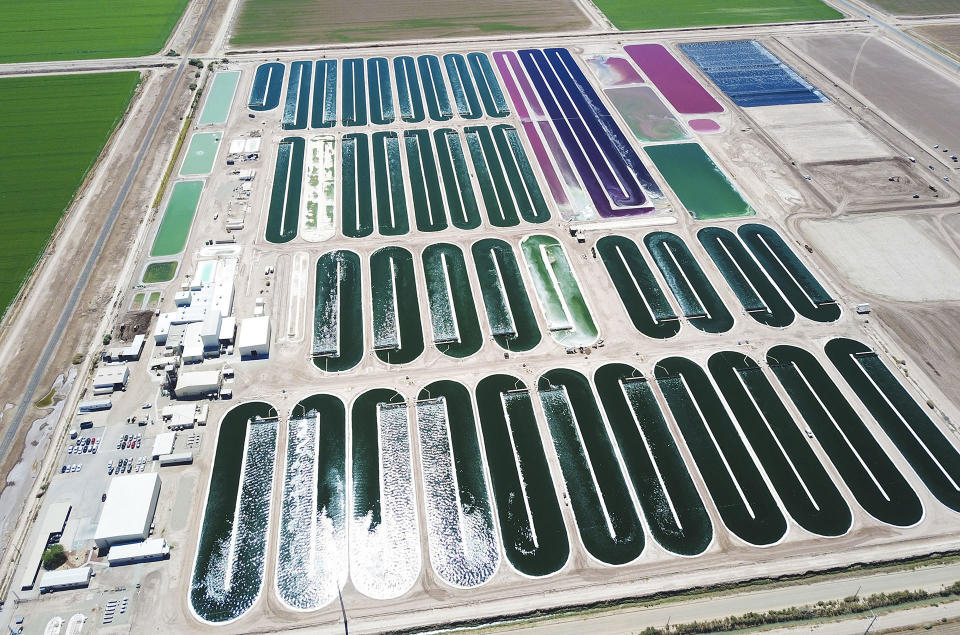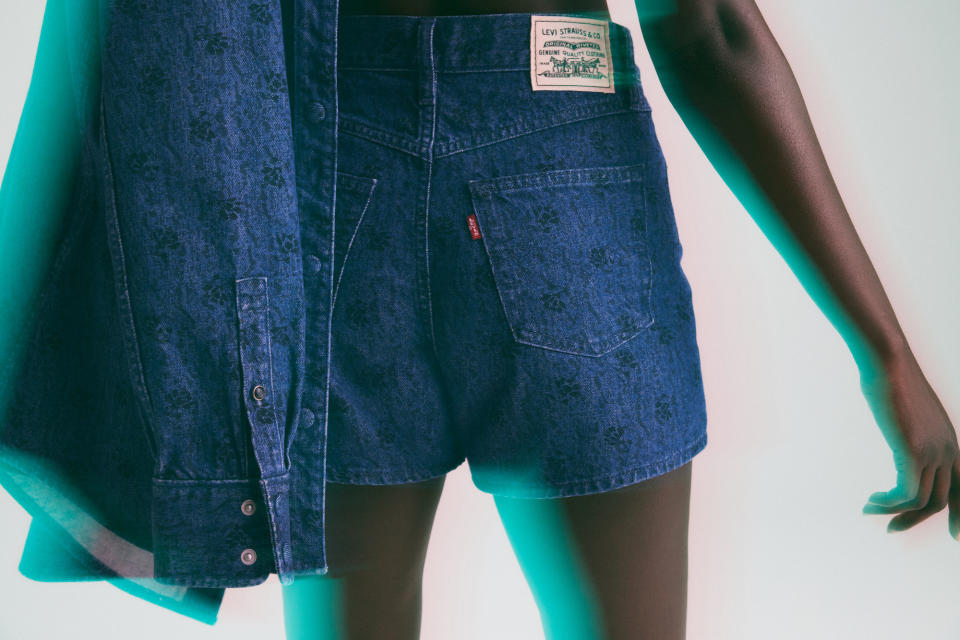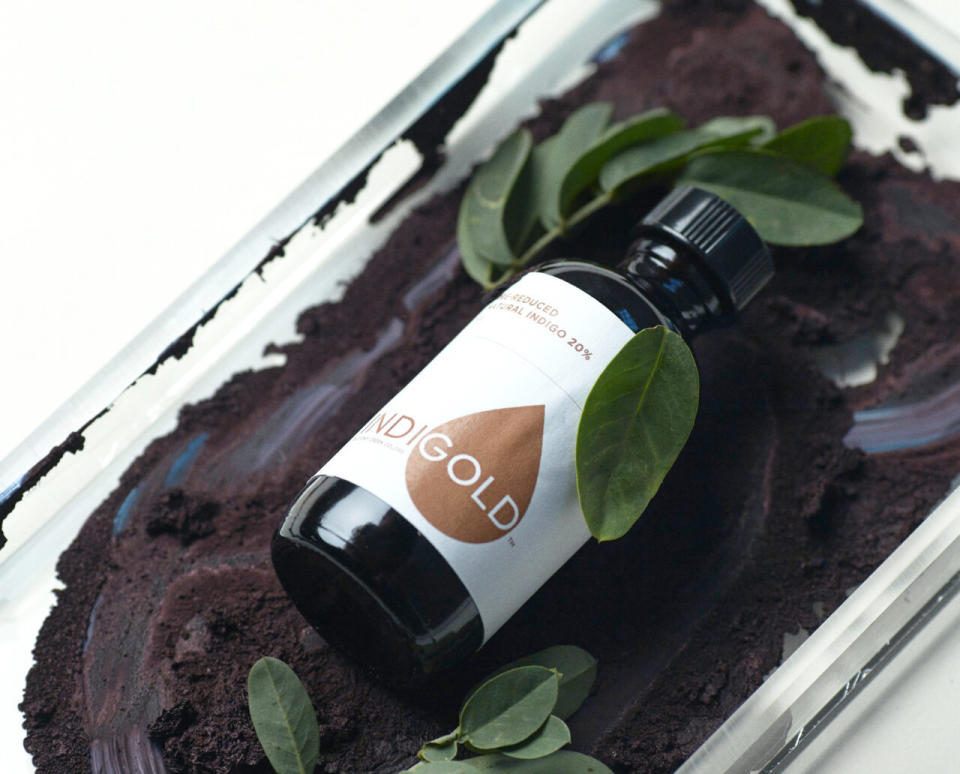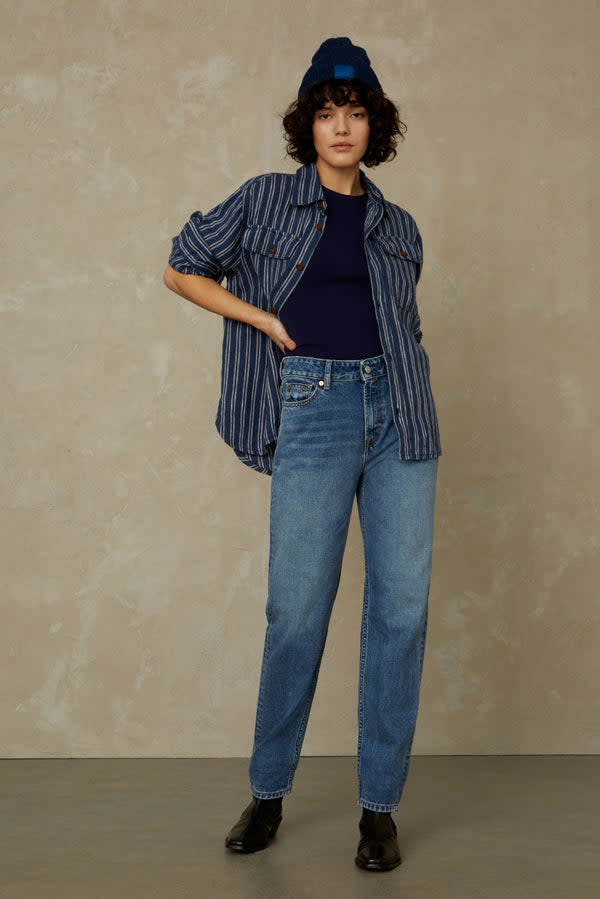Year in Review: The Denim Industry Takes On Fundraising, Acquisitions and Sales

In 2023, the denim industry saw funding raised for sustainable alternatives to harmful chemicals. It also saw the acquisition of brands with sustainable roots, reaffirming their potential to make a positive impact.
Funding to scale bio-based pigments is ramping up as companies pivot to sustainable alternatives to petroleum-based synthetic dyes.
More from Sourcing Journal
In December, Danish synthetic biology firm Octarine Bio raised 4.35 million euros ($4.6 million) to scale its microbially fermented colors, bringing its total raised to more than 12 million euros ($13 million) to date. The funding will help Octarine to scale and optimize its color solution in preparation for commercialization.
Octarine employs a “first-in-industry precision fermentation process” to develop vibrant and sustainable natural dyes called OB-CLR. Unlike traditional nature-based colors known for their dull, earthy hues, OB-CLR’s color spectrum allows for vibrant purples, blues, pinks and greens. The colors can be seamlessly integrated into a company’s existing supply chain. Since the colors bind directly to textiles without the use of mordants or other chemical additives, it results in significantly less water and energy use, and removes toxic chemicals from the dyeing equation.
In the same month, Living Ink, the Colorado-based bio-based pigment manufacturer used by Nike, Patagonia, New Balance, Coach and American Eagle, secured $3.5 million to scale its flagship product, Algae Black.

The patented black pigment is made from algae biomass waste that would otherwise end up in landfill. The pigment formulations are safe, renewable and carbon-negative product solutions for brands across multiple industries, according to the company.
The financing was co-led by the U.S. Department of Energy and strategic investors. Of the total $3.5 million secured in this financing round, $1.75 million was awarded through the U.S. Department of Energy’s grant programs, Phase II Small Business Innovation Research Program and the Carbon Dioxide Removal Program. An additional $1.75 million was contributed by strategic investors, including Kayan Ventures, an early-stage venture fund focused on opportunities in health-tech and climate-tech, and Fashion for Good.
Living Ink said it will use the funding to increase yields, utilize more diverse feedstocks, scale up production, and reduce costs.
Another Fashion for Good-backed black pigment gained traction in 2023.
Biochemicals innovator Nature Coatings received a $2.45 million cash infusion to scale its green alternative petroleum-based black pigment. Investors include climate-focused venture capital firm Regeneration.VC, social impact investors The 22 Fund, safe chemistry investment firm Safer Made, women-focused VC Portfolia, and actor and environmentalist Leonardo DiCaprio.
Called BioBlack TX, the product contains a proprietary pigment derived from industrial wood waste that comes from sustainably managed, certified sources. The carbon-negative black pigment dispersion’s unique blue undertone lends depth to a garment’s coloring, while also demonstrating superior lightfastness to conventional dyes, with an eight out of eight rating on the American Standard Test Measure scale.
BioBlack TX is a part of recent fabric collections by Artistic Milliners and AGI Denim in Pakistan and Orta in Turkey. It was also used in the Spring/Summer 2023 Levi’s WellThread collection to make a black floral print over indigo jean shorts and jackets.

Bio-based indigos saw growth as well.
French bio-tech company Pili secured $15.8 million in Series A funding in February to help it produce the first tons of high-performance bio-based indigo.
Compared to classic petrochemical dyes, Pili states that its microorganisms produce the same amount of dye without petrol or chemicals and need just one-fifth of the usual water amount while growing at room temperature.
At the time of the funding round Pili had already secured several million euros of pre-orders of biobased dyes and pigments in the textile, ink, and paints sectors. In July, the company built out an operations team to complete the industrialization of Pili processes and manage the building a large-scale manufacturing site.
A year after California-based Huue secured $14.6 million in Series A funding, AGI Denim used its enzymatically produced dye in a special collection to celebrate the mill’s 30th anniversary.
Using a proprietary bio-based process, Huue produces indigo that’s just as effective for denim as conventional solutions, without any environmental impact and harmful chemicals. It is described as a one-to-one solution as it slots into existing denim manufacturing processes.
Other innovators in the dye space hit a wall, in terms of growth.
A year after it raised $4.8 million in Series B2 funding, co-led by Levi Strauss and Lewis & Clark AgriFood, Stony Creek Colors said it needed a new owner to scale its natural indigo innovations and products.

Used by Levi’s, Lucky Brand, Patagonia and J.Crew, Stony Creek grows proprietary, regenerative Indigofera plants. The natural indigo is extracted and turned into a powder that is used to create a pre-reduced natural indigo called IndiGold which manufacturers can substitute for harmful, chemically based synthetic dyes.
Sarah Bellos, Stony Creek’s CEO and founder, said the focus of the potential purchase is to scale natural indigo solutions to the industry at large. She also said it’s important that farmers and partners continue signaling interest in working with the company so that she and her team can help facilitate contracts for new ownership.
In November, the board of Digital Brands Group said it is looking at strategic options for it just two-and-a-half years after it went public. The owner of the denim-centric DSTLD brand reported a nearly 70 percent net revenue increase in the second quarter. At the time of the announcement, the company said it was focused on ways to “options to maximize shareholder value.”
Some brands will kick off 2024 will new owners.
A year after it closed one of its two Cambodian factories, Outland Denim announced that it raised $405,394 from 208 new investors during a third round of equity crowdfunding in December. Previous rounds raised a combined $1.3 million.
The Australian brand kicked off the campaign shortly after purchasing Nobody Denim in October. Outland positioned the funding round as the beginning of a “new chapter,” with its primary focus on integrating and scaling Nobody, and then a global expansion for both brands.
Kings of Indigo kicked off 2023 with new owners.
After it declared bankruptcy in November 2022, Kings of Indigo was resurrected by new owners Kathrin and Sebastian Proft, a couple who owns and manages three other sustainable fashion companies in Germany and Austria: German fashion retailer Dollinger and the Stapf and Feli & Hans (formerly H. Moser) brands.

The duo officially acquired Kings of Indigo on Dec. 21, 2022 by registering Kings of Indigo B.V., which replaces the previous owner KOI International B.V.
In September, brand management firm WHP Global snapped up fellow Dutch brand G-Star Raw. Existing shareholders, including founder Jos van Tilburg, retained a stake in the brand, which continues to operate out of its Amsterdam headquarters.
G-Star saw financial ups and downs prior to the sale. The Australian arm of the brand fell into administration in August 2020 and shut down after failing to find a buyer. The U.S.-arm of G-Star Raw Retail Inc. filed its own voluntary Chapter 11 bankruptcy court petition in July of that year in Los Angeles. And shortly after the U.S. filing, a corporate restructuring sheared 10 percent of G-Star’s headcount from payroll. The U.S. business ultimately restructured and exited bankruptcy proceedings in late 2020.
WHP has a footprint in the denim sector. It acquired the William Rast and Joe’s Jeans brands in November 2021. Both brands were acquired out of bankruptcy in the Sequential Brands Group Chapter 11 filing.

